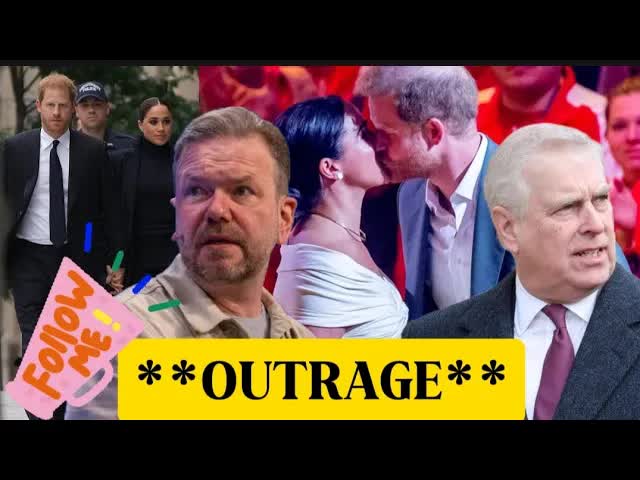In a recent episode of his LBC radio show, James O’Brien found himself in the eye of a storm after discussing the ongoing controversies surrounding Prince Andrew.
His remarks ignited a flurry of discontent among listeners, leading to a series of heated calls that underscored the polarized opinions regarding the embattled royal.
As the second son of Queen Elizabeth II, Prince Andrew’s association with convicted s offender Jeffrey Epstein has been a focal point of public outrage, and O’Brien’s candid commentary only intensified the backlash.
During the broadcast, O’Brien addressed the way some people refer to Prince Andrew, asserting that despite the scandal, his proper title remains “His Royal Highness Prince Andrew.”
This statement quickly drew fire from callers who felt that the prince’s title should be stripped away due to his controversial past.
The tension escalated as one caller provocatively suggested that referring to Andrew as “the paedophile’s friend” was appropriate, given the gravity of the accusations against him.
The conversation took an unexpected turn when another caller likened the scrutiny faced by Prince Andrew to anti-Semitism, claiming it was a targeted witch hunt.
Such comments reflect the deep-seated emotions tied to the royal family, revealing how discussions about their actions can quickly spiral into broader societal issues.
O’Brien challenged this perspective, asking whether it was fair to blanket the entire royal family for one member’s alleged misdeeds.
Amanda, another caller, raised a poignant question: Should the actions of one royal tarnish the reputation of the entire monarchy?
She argued that if someone in her family committed a crime, it wouldn’t be just to judge the whole family based on that individual’s actions.
This sentiment resonated with many who feel that the royal family should not be collectively punished for Prince Andrew’s choices.
As the debate continued, O’Brien confronted his callers with pointed questions about accountability and friendship.
He pressed them on whether associating with someone accused of heinous crimes should impact one’s status.
The ensuing dialogue highlighted the complexities of loyalty and morality, as O’Brien maintained that his role as a journalist was to hold powerful individuals accountable, regardless of their status.
The backlash against O’Brien’s stance was palpable, with some listeners accusing him of bias and insensitivity toward the monarchy.
Yet, O’Brien stood firm, emphasizing that his duty was to scrutinize public figures and their actions.
This unwavering commitment to journalistic integrity is what sets him apart in a media landscape often criticized for pandering to public sentiment.
The discourse surrounding Prince Andrew has sparked a broader conversation about the responsibilities of the media in addressing sensitive topics.
While some argue that the press should tread carefully, others assert that exposing wrongdoing is essential for accountability.
This ongoing debate raises important questions about how far the media should go in covering high-profile scandals.
As the situation unfolds, public opinion remains sharply divided.
Many express outrage over Prince Andrew’s alleged conduct, while others defend him, insisting that he deserves fair treatment.
This polarization is indicative of the larger cultural conversations happening in Britain today, where opinions on the monarchy are increasingly contentious.
O’Brien’s experience serves as a reminder of the challenges journalists face when tackling controversial subjects.
The rapid-fire calls he received exemplified the emotional stakes involved in discussions about the royal family, with loyalists eager to defend their institution against perceived attacks.
However, it is essential for media figures to navigate these waters with care, ensuring that their reporting remains grounded in facts and ethical considerations.
The incident also highlights the need for a more nuanced public discourse.
Instead of resorting to outrage, discussions should focus on pragmatic solutions that prioritize accountability and transparency.
As the royal family continues to grapple with its image, finding common ground will be crucial in moving forward.
Ultimately, the controversy surrounding Prince Andrew and the reactions it elicits reflect deeper societal divides.
As the media plays a pivotal role in shaping public opinion, maintaining ethical standards and fostering constructive dialogue will be essential in addressing the complexities of this ongoing saga.
The challenge lies in balancing the public’s right to know with the dignity of individuals caught in the crossfire of scrutiny.
